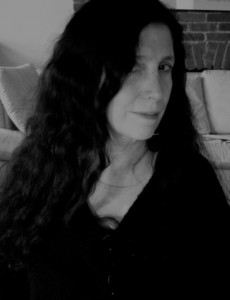 WHY DO I WRITE FICTION? Because I’d go mad if I didn’t. Fiction helps me understand the un-understandable. It helps me forgive the unforgivable. I get to be lost in a whole other world and as I learn the language and figure out the terrain, I heal the things that haunt and obsess me.
WHY DO I WRITE FICTION? Because I’d go mad if I didn’t. Fiction helps me understand the un-understandable. It helps me forgive the unforgivable. I get to be lost in a whole other world and as I learn the language and figure out the terrain, I heal the things that haunt and obsess me.
And I started doing it young.
I was that little girl, you know, the one who was too skinny, too bookish, too frankly odd, to fit into the real world. Plus, I had asthma, which created a lot of merriment (the game of “hide the inhaler so Caroline can’t get it” was very popular.) I couldn’t possibly write about the pain I felt, so instead, I began to write about a different reality. I wrote about a girl like me who had rich parents who let her travel the world. I wrote about being a doctor in Spain or a dancer in Egypt. I wrote about being able to breathe any time I wanted, about being beautiful and beloved.
Oh yes. Fiction.
The more I wrote, the more I loved to write, and the more I became aware that writing wasn’t just escape. You could give the issues that haunted you to other people and watch them grapple with them, and sometimes they offered solace. When my fiancé died two weeks before our wedding, everything in me shattered. I felt as though a layer of life had been ripped away, and the wound was unhealable. How could I possible understand how such a thing could happen, and how was I supposed to live in its wake? The only thing that saved me was writing about a woman whose fiancé died in a freak accident, one caused by his daughter. Her journey made me realize that just because a life ends, the relationship does not, and that sometimes pain can make you grow in ways you could never imagine.
When I was critically ill after the birth of my son, I was given memory blockers so I wouldn’t remember the pain or the Inquisition-like procedures. But a year later, when I was well, I began to have nightmares, vague shadowy images that bolted me awake in terror. I couldn’t walk past the packaged soup display in the market without breaking out into a cold sweat. And I didn’t know why. I couldn’t walk into NYU Medical Center without wanting to weep. A friend of mine, a shrink, told me it sounded like Post Traumatic Shock. “You might have to make up some memories so you can move through them,” he told me. So I did, giving my illness to a character, writing about grief and terror, and as I did, the nightmares subsided.
I know a lot of writers today think they should write to the marketplace. They write for their readers. For hopes of fame or glory. Not me. I tunnel down deep. I write about the things that haunt or obsess me. My terror of driving and fear of being blamed for things I didn’t mean to do led to Pictures of You. I always wonder how outsiders find their place in a community that doesn’t want them, and that led to Ava Lark in Is This Tomorrow.
Yes, I write nonfiction, but to me it isn’t the same. Writing fiction is really like living another life. And what’s more amazing than that?
—————————————
CAROLINE LEAVITT is the New York Times bestselling author of Is This Tomorrow and Pictures of You. Visit her at www.carolineleavitt.com
This is a terrific little essay articulating what it means to be a fiction writer. In the beginning of each novel, I stew and make notes about characters and story arc. What always surprises me in the revision and rewriting stage is how much of me and my current belief systems shine through my characters. I love the freedom of writing fiction because I don’t have to write what I know. I can write what I want to know and/or wish were true.
Heartbreaking, undefended and such a gift for this writer. I needed to hear—and need to heed—your words.
Beautiful, left me gasping (maybe the asthma references). The world is unforgiving, does fiction forgive us of our sins? Icy cold, maybe not the best day to write at all… but here it is…Caroline
“Just because a life ends, the relationship does not, and that sometimes pain can make you grow in ways you could never imagine.” Thanks for sharing this important insight.